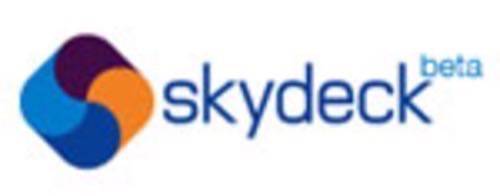“…someone is going to build a billion-dollar company around the implicit social graph. And I’m betting on Skydeck.” Jason Devitt
Welcome to the second installment of our new People in Tech series. In this post we interview Jason Devitt, CEO/Co-Founder of Skydeck. It’s a mobile web startup built on the premise that “you ought to be able to manage your cell phone records the same way that you manage your email.” The second big idea of Skydeck is that your true social network is hidden in your communication records. Read on for more insights…

Do you remember Vindigo? Back in 1999, when the Palm Pilot
was booming, two young guys quit their trading jobs at the hot NYC hedge fund D. E. Shaw & Co., with a vision of the future that we are only starting to live today.
Jason Devitt and his partner David Joerg dreamed of a mobile phone that was web aware, geo-location aware, and full of useful user generated content, reviews and games. Now Devitt is back with his second startup, also in the mobile space: Skydeck. We caught up with him for an interview.
Almost a decade ago, Devitt and Joerg recognized the power behind the idea of a hand held computer that users carried around with them wherever they went. The duo went on to build Vindigo city guide – one of the first successful consumer applications for mobile devices.
The software automatically loaded local information onto Palm Pilots and allowed people to find reviews
of local businesses and restaurants. It was downloaded by over 2 million users and won numerous awards.
Five years later, Vindigo was acquired by For-Side.com – one of the largest mobile media companies in the world. And Devitt is back with Skydeck, which brings the social dimension to your phone in a whole new way. Before reading this interview with someone we found to be a very insightful and visionary entrepreneur, we recommend that you get a feel for what sort of person Jason Devitt is by watching his testimony
before the US Congress.
Note: Skydeck is still in private beta, but if you mention ReadWriteWeb during sign up,
you will get an invite straight away.
What is your background?
I grew up in Ireland, studied electronic engineering and law (long story), and then spent four years working for an extremely successful hedge fund called D. E. Shaw, in London and New York. That was like getting paid to do an MBA, but more importantly the company moved me to New York in the middle of the dotcom boom and I finally discovered what I wanted to do with the rest of my life: start companies.

Tell us about your first startup – Vindigo.
Vindigo was one of the first companies in the US to sell content and applications for mobile devices. We published about twenty different titles for BREW, Java, Palm, and Windows devices. We powered apps for MapQuest, the New York Times, MadLibs, and Plaxo, we managed the mobile web portal for a tier 1 US carrier, but we also developed our own content and we were best known for our first app, the Vindigo city guide. We started that company in my apartment, built it up to $10 million in revenue, and sold it in 2004. Vindigo is still in business and still profitable as far as I know, but I left in 2005.

How did you come up with the idea for Skydeck?
My co-founder Mike Wells and I were working on a completely different business idea, and our research for that led us to take a close look at cell phone bills. We realized that there’s a lot of useful information locked up in your bill in a useless format. For example, if you live in the US, there’s a complete record of all your calls each month – both incoming and outgoing. We asked ourselves why is this data so hard to get at? Some carriers let you download a CSV file, some smartphones let you export a file, but the vast majority of carriers and phones don’t offer either and there are no standards for the rest.

You may think it’s a good idea that all this data disappears into the ether. But it doesn’t. Your carrier uses it to market new services to you. Your employer can get at it if you have a business plan. The police can get it if they have a warrant, and the NSA can get it without a warrant. So why can’t you? That was the starting point.
What is the main idea behind Skydeck?
There are actually two big ideas. The first is that you ought to be able to manage your cell phone records the same way that you manage your email.

Imagine if Outlook or Apple Mail or Thunderbird only showed you the last ten emails that you had sent or received. What would you do? You’d try to make notes about emails that were important. You’d send someone an IM instead of an email just to make sure you had a record of the message. You’d try to guess the last time you sent an email to a customer. But most of the time you’d just forget about a message as soon as something else grabbed your attention. You’d get by – you may remember life without email at all – but it would be broken. Yet that’s how our cell phones work today. We plan to fix this. We start with the data in your phone bill, marry it to your address book, and turn the list of numbers into a history of all your conversations so that you can search and sort and filter it just like your email archives. We’re working towards real-time data.
The second big idea is that your true social network is hidden in your communication records.
Your true network is not the list of people that you ‘friend’ on Facebook or LinkedIn; it’s the people that you call and text and email and IM every day. Those friends are not created equal. The ones you speak to most often are important, and the guy that you exchanged one email with in 2001 is not, even if he tags you on every new social site online. Skydeck maps your true social network using your cell phone data. Straight away you can see who you call most often, who you need to call, and who never calls you back. If you make a lot of phone calls, this can change your behavior. Over time we’ll help you use the data to manage and prioritize all your communications, including activity on other networks. And as of last week we let you share some of the data – with everyone opting in – so that Skydeck members can see not only which other Skydeck members have connected to you, but which of them really know you well.
What influenced your choice to build a browser extension?
We need you to trust us with some very sensitive information. We decided that one way to earn that trust was to avoid asking for the username and password to your cell phone account. So we wrote an extension that stores those in your browser, retrieves your bills on your behalf, and uploads them to Skydeck.

We’ve had mixed reactions to this approach. Some people see any download as a security risk in itself; others share a computer and don’t want to store passwords in the browser. And some people would sooner give up their social security number, home address, and medical records than spend 30 seconds installing a toolbar. On the other hand, some people appreciate the effort we made and others love the toolbar because we included a gauge showing how many minutes and text messages you have left on your account each day. In the future, we’ll offer people a choice.
What are the most complex technical challenges facing Skydeck?
Your true social graph is much richer than a list of connections, because each connection has some measure of strength associated it with. The challenge is that this graph is directed and asymmetric, unlike most networks you create online. This means, for example, that each person has a unique, personal view of the network.

We’ve just started giving users the ability to browse and explore this network. Adding better ways to navigate it, keeping it up-to-date as the data flows in, and scaling the whole thing are some of the technical challenges we’re excited about.
What are your goals for 2008 and beyond?
We just talk about the next iteration. And the next iteration is data that updates every day, not just once a month.
How did the mobile landscape change between your first and second coming?
When we started Vindigo in 1999, a smartphone was the Neopoint 1000. In 2000 I bought the first phone in the world with a color screen, the Sony Ericsson T68. There was no mobile web, there was only WAP, and WAP was so awful that we built our first app for PDAs. Just a year ago people claimed that the iPhone would never be a mass market product because it was too expensive. Now it’s $199. Five years from now, a phone with the feature set the iPhone had at launch will be free from Tracfone, without a contract.

But the biggest and most important change is the move towards open platforms. Mobile 1.0 companies like Vindigo couldn’t do anything without the permission of carriers, and some of our best ideas died on the vine. That’s why I was happy to testify to Congress and the FCC in support of the open access provisions for the 700 MHz auctions.
Today most phones have a credible web browser and more than 10% of new phones have an open OS. (Not open source, just open to installing a third-party application; the bar is low in mobile.) That means there are a lot more services that companies like Skydeck can take directly to the consumer. This is the only way the mobile market will ever realize its potential, unless the carriers get religion and embrace innovation. And thanks Alex, but my ‘second coming’ won’t do that.
Which business leaders, past or present, do you admire the most and why?
In our culture we place too much emphasis on leaders and not enough on teams.
What is one insight, business or technical, that you want to share with our readers?
The implicit graph will be to social software what PageRank was to search.

The implicit social graph is the true social network that I mentioned previously, the network deduced from your communication history: automatic, dynamic, weighted, and not necessarily symmetric. Social software refers to any application where people interact, from Facebook to eBay to email.
A problem common to all social apps is that the more successful they get, the harder it gets to pluck the signal from the noise. Yogi Berra may as well have been talking about MySpace when he said “Nobody goes there anymore. It’s too crowded.”
Starting out on eBay, my reputation should not be zero, it should be based on the reputation of the people who know me well. I should be able to give out a public email address, but block messages from everyone except my true 1st and 2nd degree. On Twitter I should be able to follow the 25 people who are most important to me at any given time. And I should be able to do all this without having to make and maintain a list of who those people are, and without having to fill out forms, check boxes, and assign people to groups every time I meet someone new.
I’m not claiming that we’ve got it all worked out and that Skydeck will be the next Google. I know of at least six startups exploring different aspects of this. There are also people working on it at Yahoo, Google, and Facebook, and readers should take a look at MIT’s work on reality mining.
My ‘insight’ is that someone is going to build a billion-dollar company around the implicit social graph. And I’m betting on Skydeck.
Wrap Up
Please post any additional questions for Jason and also, let us know who else you’d like to see interviewed in our “People in Tech” series via the comments below.
If you enjoyed this post, please digg it by clicking here

















